Department Profile
Vision:
Our department aspires to be a reference center, committed to an academic excellence and to the attainment of national and international recognition for the quality of its educational, research and service activities in Microbiology.
Mission:
- Prepare students for careers in Microbiology sciences and to participate in public service by providing high standard of academic curricula and training programs in various disciplines of Microbiology producing Microbiologists with recognizable quality at the postgraduate level.
- Empower microbiologists to recognize, investigate, engage with, resolve and manage the myriad of Microbiological problems affecting health and the environment through the programme designs.
PLOs -PSOs- PEOs
SYLLABUS 2023
B.Sc Microbiology
Programme Learning Outcomes (PLOs):
Programme Learning Outcomes are narrower statements that describe what students are expected to know and be able to do upon the graduation. These relate to the skills, knowledge and behaviour that students acquire in their study through the programmes.
PLO1: Disciplinary knowledge
Apply the knowledge of Arts, Science and Humanities to address fundamental and complex questions appropriate to their programmes.
PLO2: Critical thinking, Problem solving and Analytical reasoning
Make use of appropriate knowledge and skills to identify, formulate, analyze and solve problems in order to reach substantiated conclusions.
PLO3: Research related skills and scientific reasoning
Critically analyze research processes, products and practices with a view of strategic use of data in their field.
PLO4: Communication skills and Digital literacy
Demonstrate skills in oral and written communication and make use of ICT in various learning ambience.
PLO5: Team work and Leadership quality
Interact productively with people from diverse backgrounds as both leaders/mentors and team members with integrity and professionalism.
PLO6: Multicultural competence with Moral and ethical awareness
Defend the society against gender and environmental issues with moral and ethical awareness.
PLO7: Self-directed and Life-long learning
Formulate their own educational needs in a changing world in ways sufficient to maintain their competence and to allow them to contribute to the advancement of knowledge.
Programme Specific Outcomes (PSO):
Programme Specific Outcomes denote what the students should be able to do in their discipline at the time of graduation. They are programme specific. The PSOs should be mapped to all the specified PEOs.
By the completion of the UG Microbiology programme, the learners will be able to
PSO1: Prepare the students in all fields of microbiology for effective placement and to create effective entrepreneur by enhancing their critical thinking, problem solving, decision making and leadership skill that will facilitate startups and high potential organizations.
PSO2: Design and implement Human resource systems that comply with good laboratory practices, following ethical values, leading the organization towards growth and development.
PSO3: Contribute to the development of society and produce microbiological products, by collaborating with stake holders, related to the betterment of environment and mankind at the national and global level.
Programme Educational Objectives (PEOs):
PEOs are broad statements that describe the career and professional achievements that the programme is preparing the graduates to achieve within the first few years after graduation. PEOs should be consistent with the mission of the Institution. PEO’s can be measured by a PLO/ PSO - PEO matrix. The PEO’s should evolve through constant feedback from alumnae, students, industry, management etc. It is mandatory that each PEO should be mapped to atleast one of the PLOs.
The Graduates will be prepared to
PEO1: Take up escalating careers as microbiologist in hospitals, industries or pursue higher studies.
PEO2: Handle scientific instruments, planning, performing laboratory experiment and work with ethical values in utilizing microbes for eco-friendly studies.
PEO3: Familiarize with new techniques and improve their skills needed for self-employment.
M.Sc Microbiology
Programme Learning Outcomes (PLOs):
Programme Learning Outcomes are narrower statements that describe what students are expected to know and be able to do upon the graduation. These relate to the skills, knowledge and behaviour that students acquire in their study through the programmes.
PLO1: Disciplinary knowledge
Apply the knowledge of Arts, Science and Humanities to address fundamental and complex questions appropriate to their programmes.
PLO2: Critical thinking, Problem solving and Analytical reasoning
Make use of appropriate knowledge and skills to identify, formulate, analyze and solve problems in order to reach substantiated conclusions.
PLO3: Research related skills and scientific reasoning
Critically analyze research processes, products and practices with a view of strategic use of data in their field.
PLO4: Communication skills and Digital literacy
Demonstrate skills in oral and written communication and make use of ICT in various learning ambience.
PLO5: Team work and Leadership quality
Interact productively with people from diverse backgrounds as both leaders/mentors and team members with integrity and professionalism.
PLO6: Multicultural competence with Moral and ethical awareness
Defend the society against gender and environmental issues with moral and ethical awareness.
PLO7: Self-directed and Life-long learning
Formulate their own educational needs in a changing world in ways sufficient to maintain their competence and to allow them to contribute to the advancement of knowledge.
Programme Specific Outcomes (PSOs):
Programme Specific Outcomes denote what the students should be able to do in their discipline at the time of graduation. They are programme specific. The PSOs should be mapped to all the specified PEOs.
By the completion of the PG Microbiology programme, the learners will be able to
PSO1: acquire good knowledge and understanding, to solve specific theoretical & applied problems in different areas of the specific discipline of study.
PSO2: encourage practices grounded in research that comply with employment laws, leading the organization towards growth and development
PSO3: create effective entrepreneurs by enhancing their critical thinking, problem solving, decision making and leadership skill that will facilitate startups and high potential organizations.
Programme Educational Objectives (PEOs):
PEOs are broad statements that describe the career and professional achievements that the programme is preparing the graduates to achieve within the first few years after graduation. PEOs should be consistent with the mission of the Institution. PEO’s can be measured by a PLO/ PSO - PEO matrix. The PEO’s should evolve through constant feedback from alumnae, students, industry, management etc. It is mandatory that each PEO should be mapped to atleast one of the PLOs.
The Graduates will be prepared to
PEO1: expertise in various microbial techniques to pursue higher studies and elevate their progressive careers in industries.
PEO2: unique in designing innovative solutions for medical complications using novel drug development and follow the ethical principles in research finding for employing microbes in welfare of society and nation.
PEO3: acclimatize novel technologies and promote their skills to be a successful entrepreneur.
Diploma in Medical Laboratory Technology
PSO1: describe the basic principle of clinical laboratory procedures in haematology, biochemistry, immunohematology and microbiology.
PSO2: identify problem-solving strategies in lab analysis, apparatus trouble shooting and evaluating the accuracy in digital analysis of diagnostic tests.
PSO3: plan and implement professional activities in team and work as a leader in the diverse areas.
Faculty Details

Dr. S. Subha Ranjani
M.Sc.,M.Phil.,Ph.D.,PGDHLT
Assistant Professor & Head
E-Mail subharanjani-mb@sfrcollege.edu.in Area of Specialization Applied Microbiology VIDWAN Profile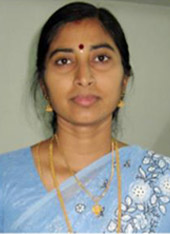
Dr.S.Radha
M.Sc.,M.Phil.,Ph.D.,CSIR-NET.,
Assistant Professor
E-Mail radha-mb@sfrcollege.edu.in Area of Specialization Microbial Biotechnology VIDWAN Profile
Dr.A.Karthika
M.Sc.,M.Phil.,Ph.D.,
Assistant Professor
E-Mail karthika-mb@sfrcollege.edu.in Area of Specialization Environmental Biotechnology VIDWAN Profile
Mrs.M.Manonmani
M.Sc.,DBT.,
Assistant Professor
E-Mail manonmani-mb@sfrcollege.edu.in Area of Specialization Environmental Microbiology VIDWAN Profile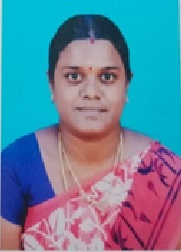
Mrs.S.Gothaiammal,
M.Sc., M.Phil.,
Visiting Faculty
E-Mail gothaiammal-mb@sfrcollege.edu.in Area of Specialization VIDWAN Profile
Ms. C. Petchiammal,
M.Sc., DMLT.,
Visiting Faculty
E-Mail petchiammal-mb@sfrcollege.edu.in Area of Specialization VIDWAN Profile
M. Sona
M.Sc Microbiology., DMLT
Visiting Faculty
E-Mail Sona-mb@sfrcollege.edu.in Area of SpecializationRemarkable Activities
Routine Hematological & Biochemical Analysis Medical Camp on 13.08.2025.
Resource Person: Mr. A. Saravanakumar, Microbiologist, M.Sc., PGDHLT, Dept. of Microbiology and DYD Clinical Laboratory, Virudhunagar
Consultancy Workshop on “Preparation of Vermicompost for Women Self-Help Groups”, Srivilliputhur Block on 06.08.2025.
Resource Person: Dr. A. Karthika, Assistant Professor of Microbiology
Guest Lecture on the topic “Rewiring Your Strategy: Smart Techniques for TNPSC Success,” on 30th July 2025.
Resource Person: Dr. K. Sakthileela, Assistant Professor, Department of Tamil, Sri Kaliswari College, and Sivakasi.
Guest Lecture on the topic "Polyhydroxy Alkanoates: The Future of Biopolymer" in line with recent technological trends on 30.06.2025
Resource Person: Dr. Murugan Paramasivam, Founder and CEO of Aurapha Private Limited, Rajapalayam.
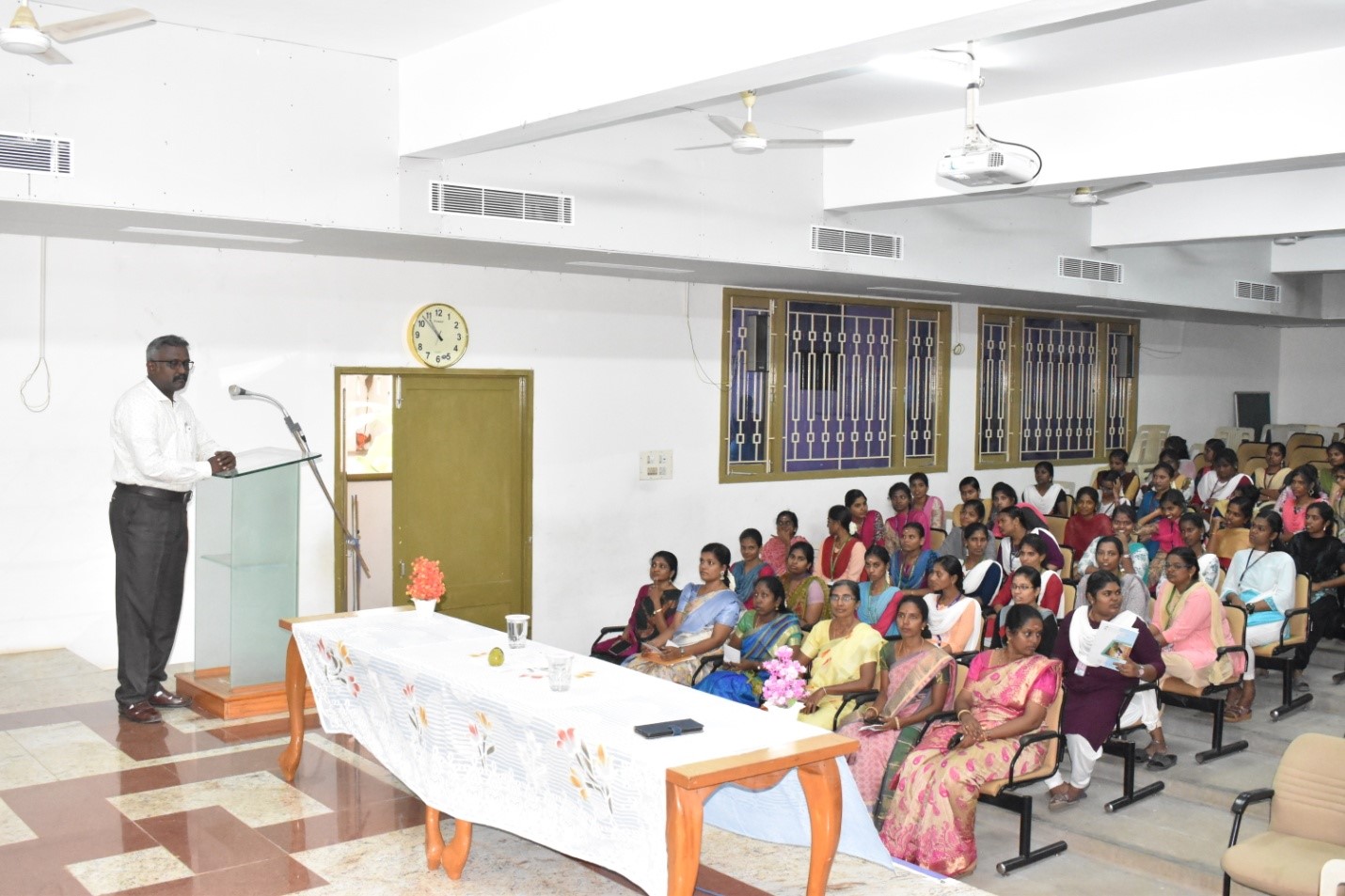
Guest Lecture: “New Technologies of Bioremediation” on 21.03.2025.
Resource Person: Dr. C. Edward Raja, Assistant Professor, PG & Research Department of Microbiology, VHNSN College, Virudhunagar.
Venue: Conference Hall
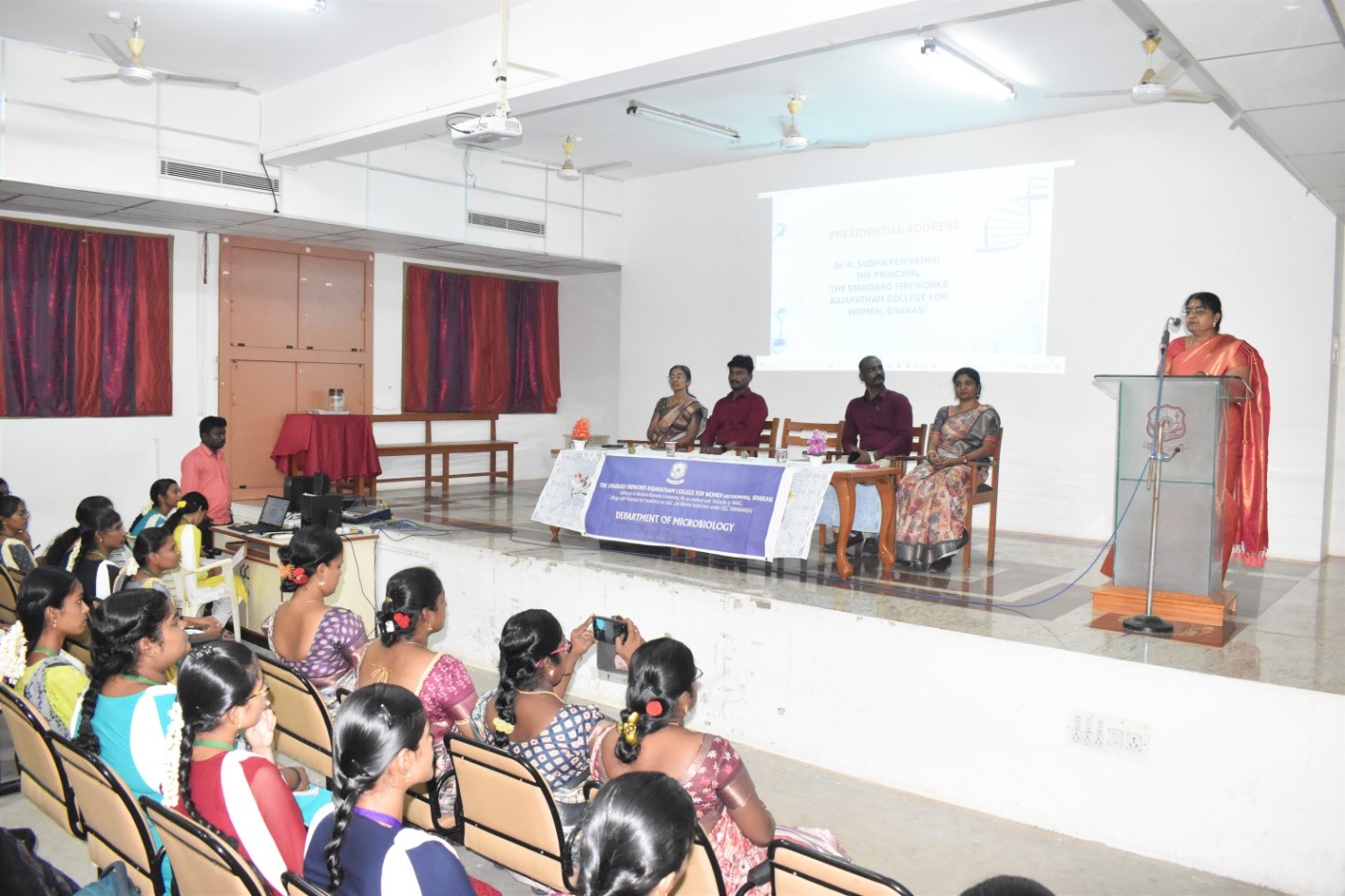
The Department of Microbiology organized a Two-Day Workshop on Practical Application of Medical Coding on 20 & 21.09.2024, sponsored by S.F.R. College Alumnae Association, for 41 PG students, featuring Mr. B. Thirukarthikeyan and Mr. M. Pandiyarajan from MediTech Solutions, Coimbatore, as resource persons.
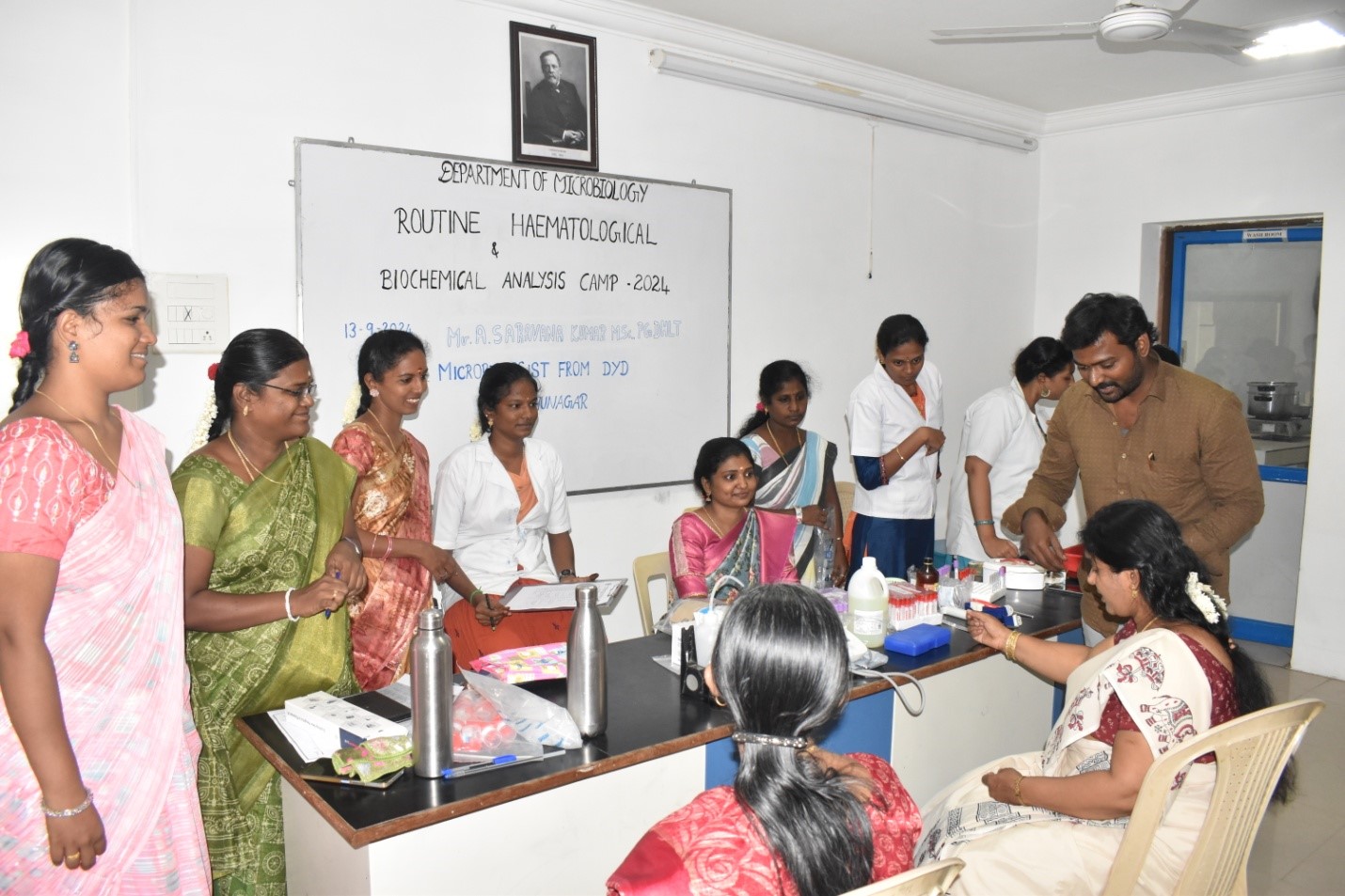
Routine Hematological & Biochemical Analysis Medical Camp on 13.09.2024.
Resource Person: Mr. A. Saravanakumar, Microbiologist, M.Sc., PGDHLT, Department of Microbiology and DYD Clinical Laboratory, Virudhunagar.
Venue: Microbiology Lab
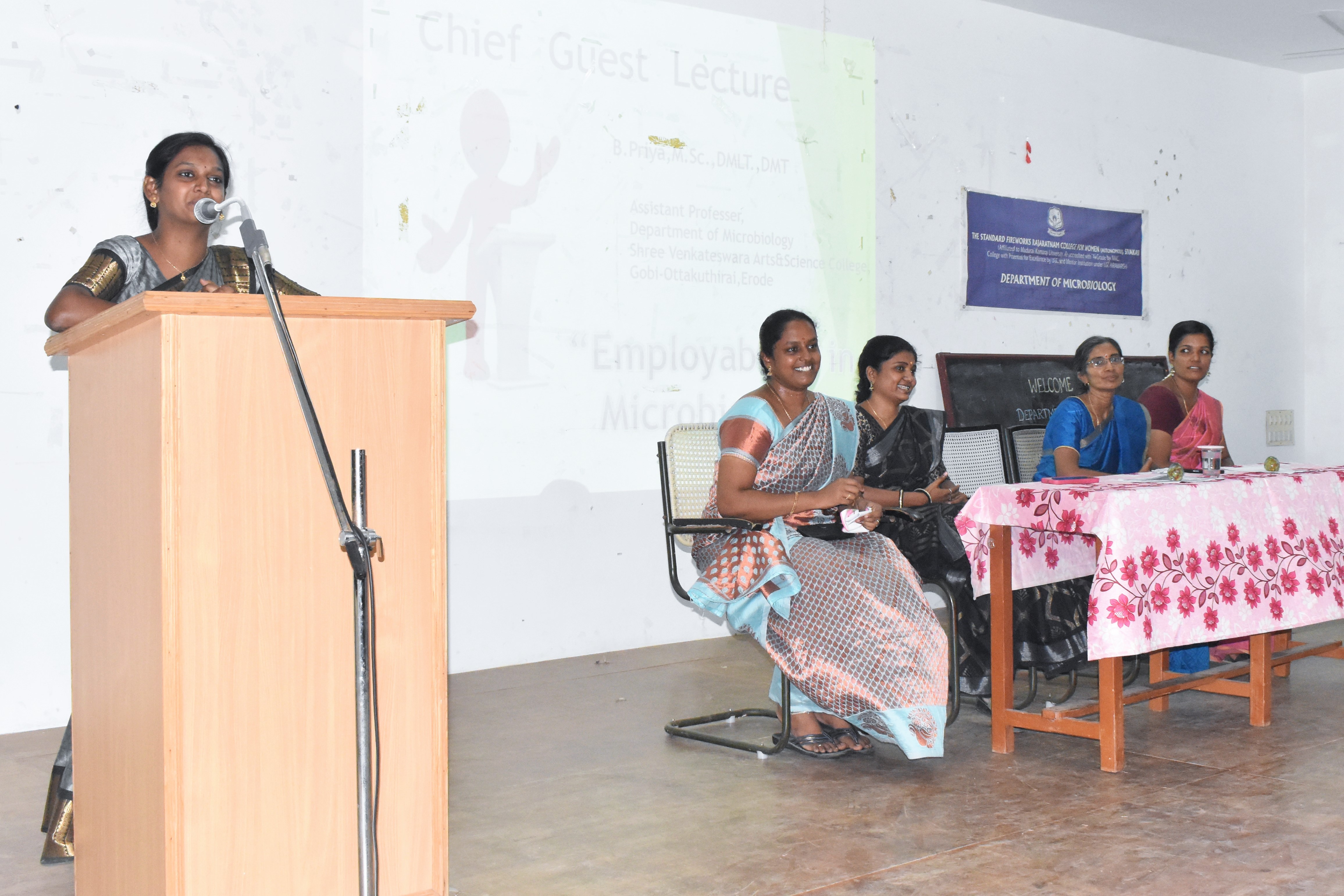
Guest lecture on "Employability in Microbiology" was conducted on 09.09.2024, featuring an insightful session by Ms. B. Priya, M.Sc., DMLT., DMT, Assistant professor, Department of Microbiology, Shree Venkateshwara Arts & Science(co-education) College, Gobi- Otthakuthirai, Erode benefiting 130 participating students.
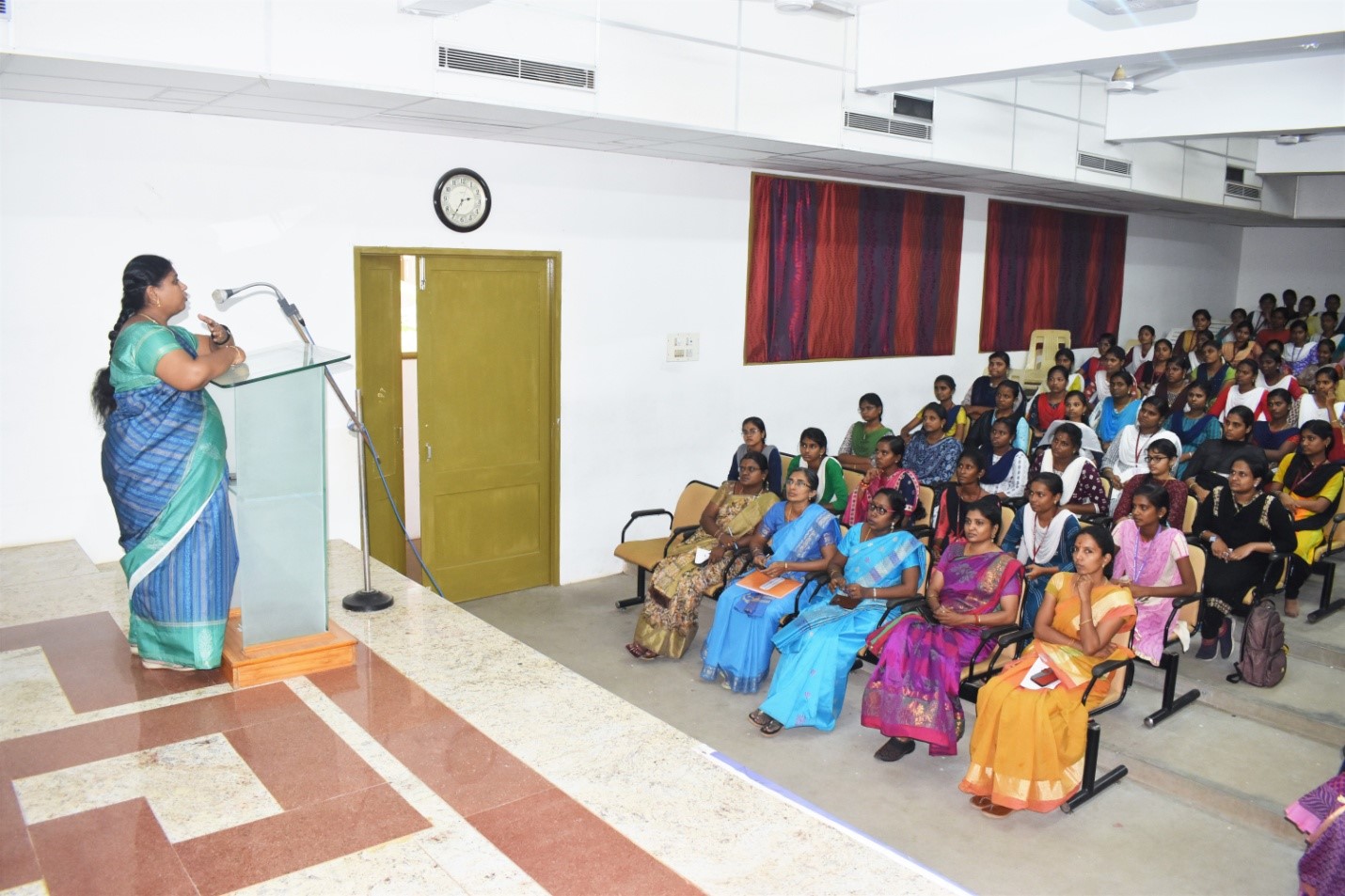
Guest Lecture on “The Role of Integrons in Antibiotic Resistance” on 22.07.2024.
Resource Person: Dr.M. Sujatha, Head and Assistant Professor, Department of Biotechnology, Sri Kaliswari College, Sivakasi.
Venue: Conference Hall
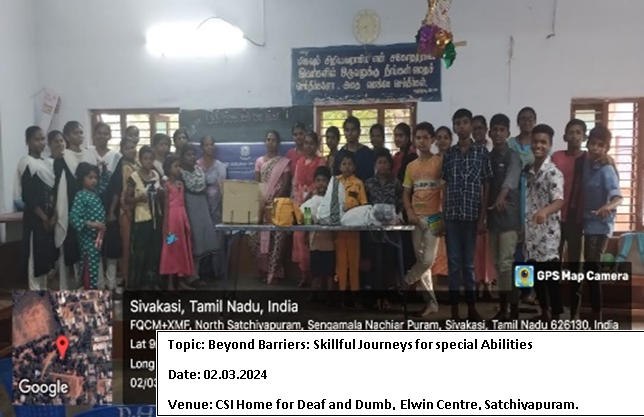
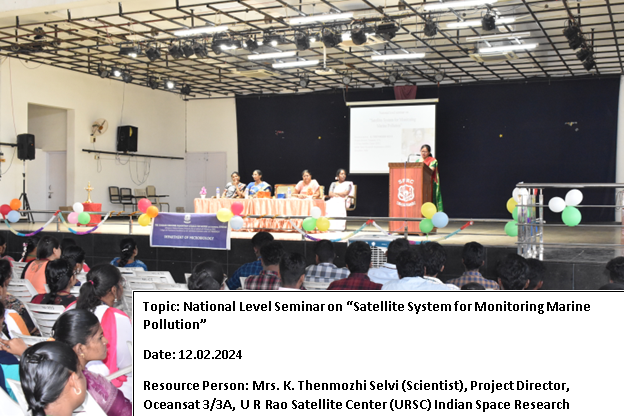
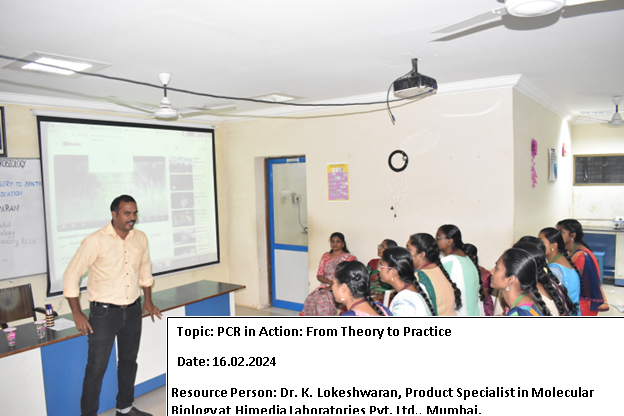
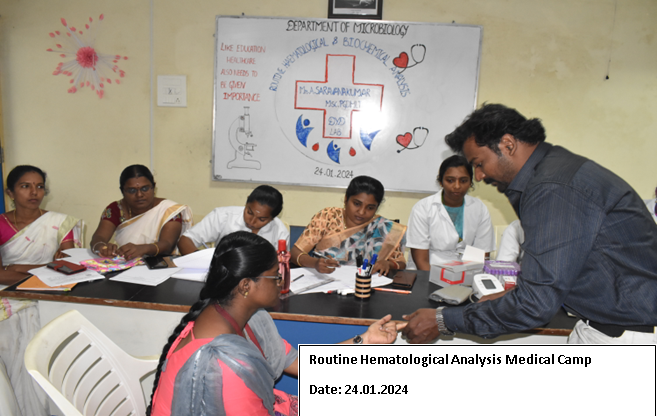
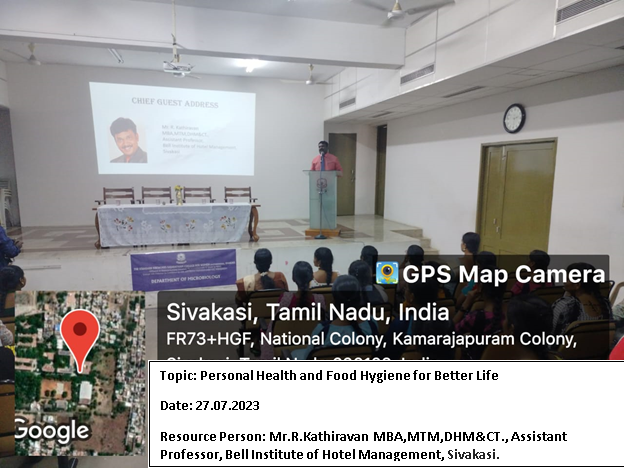
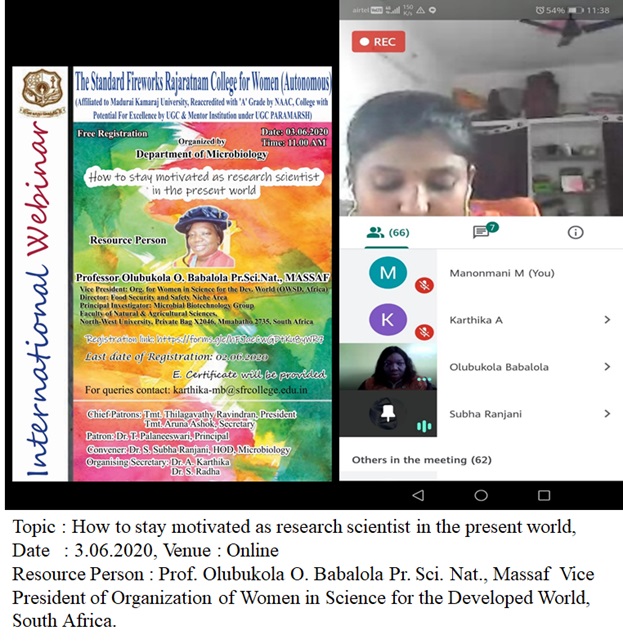
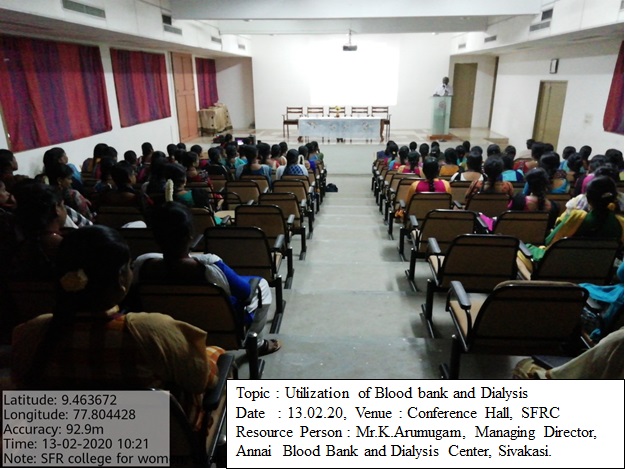
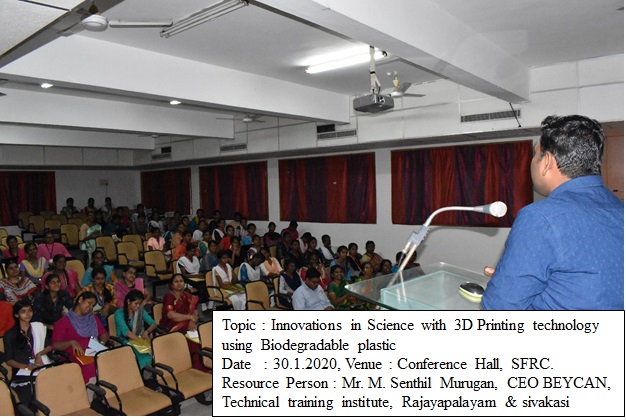
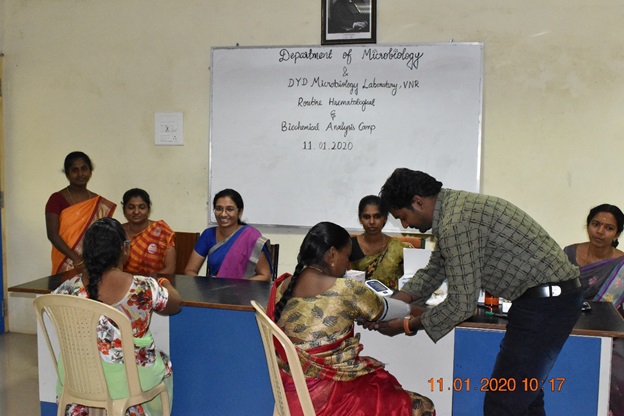
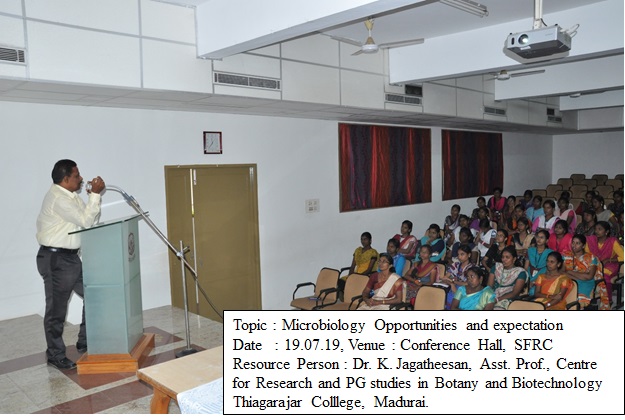
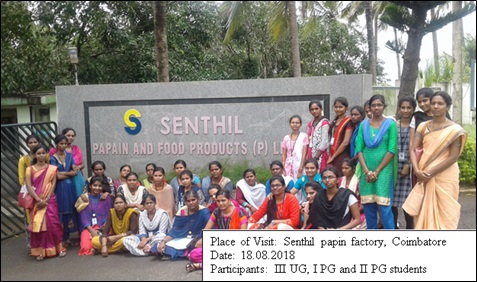
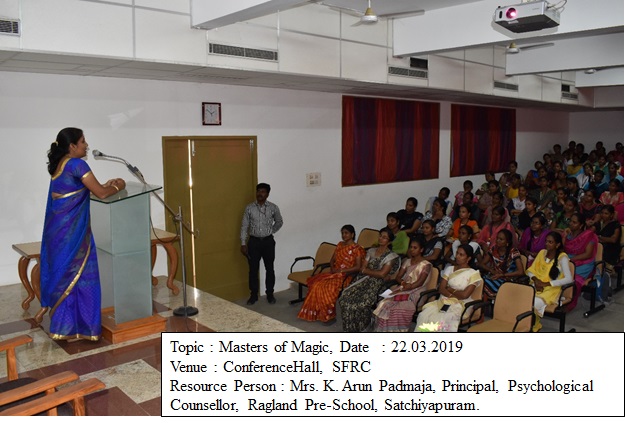
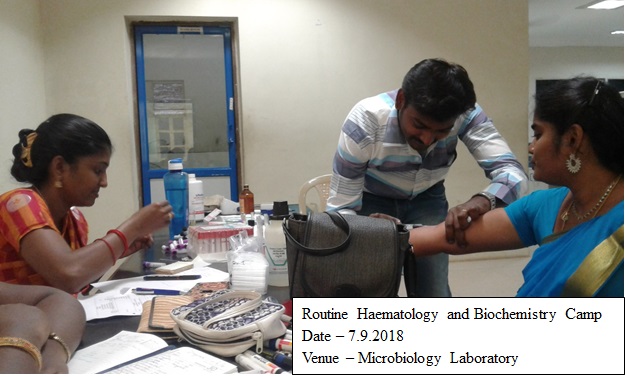
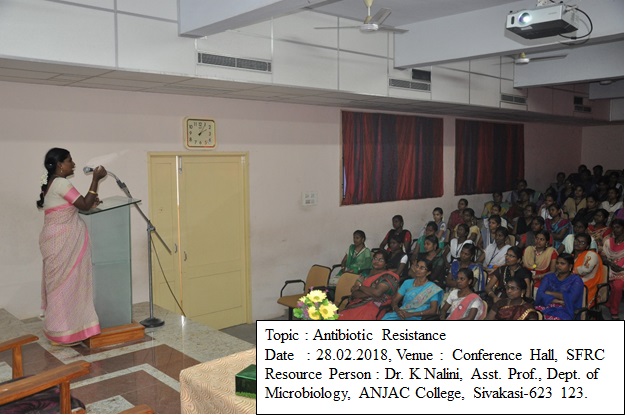
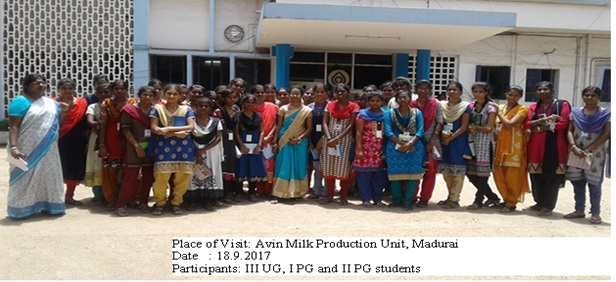
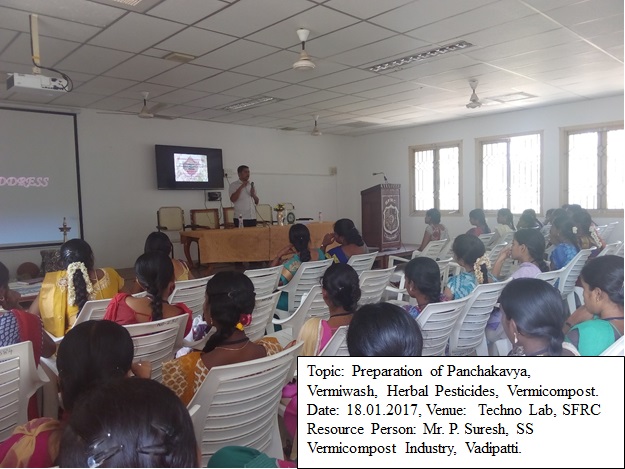
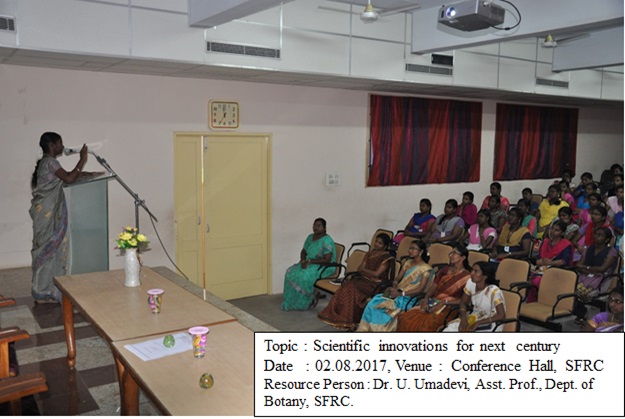
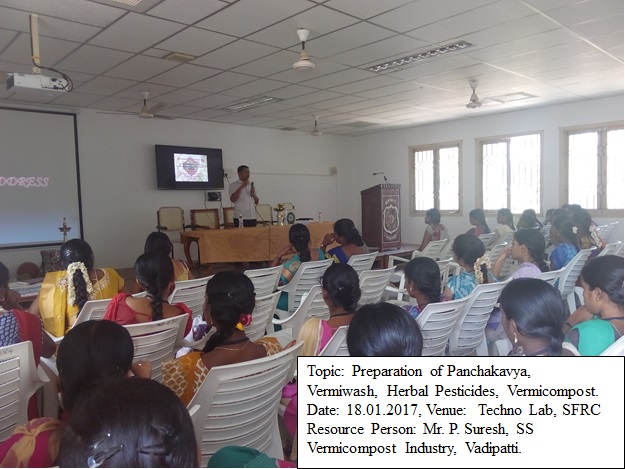
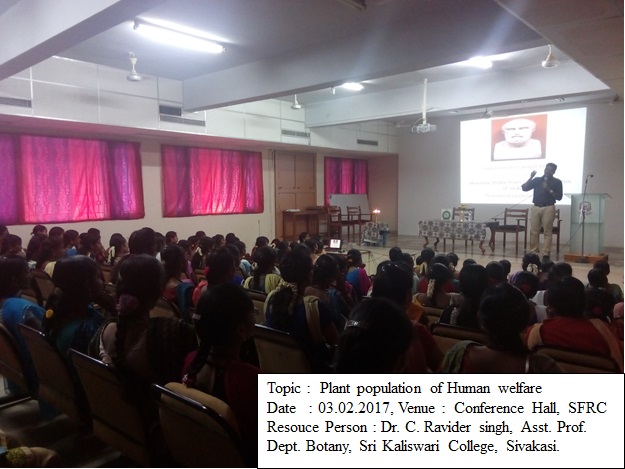
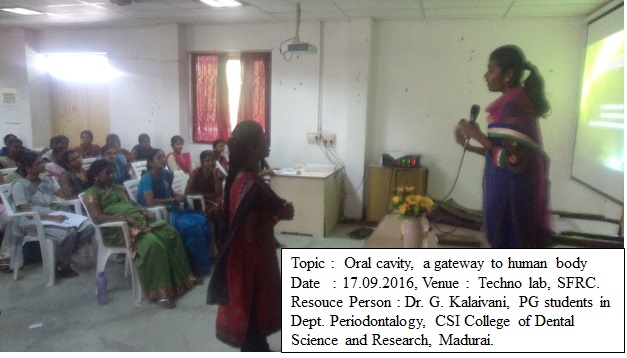
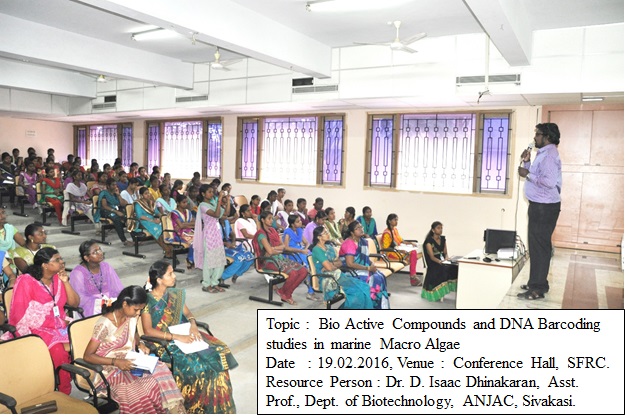
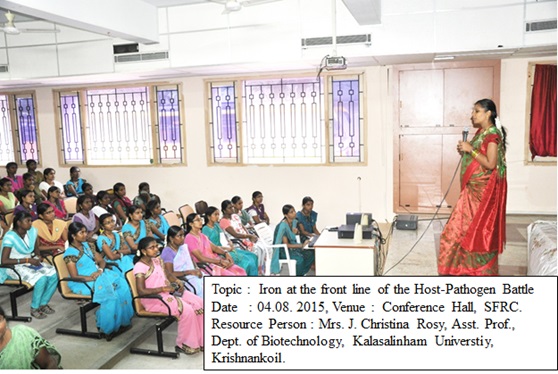
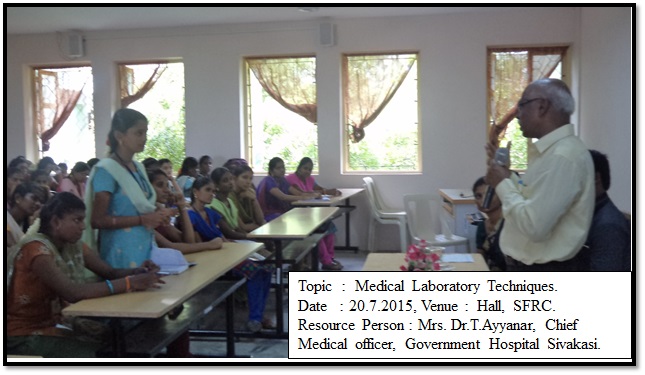
Staff Achievements
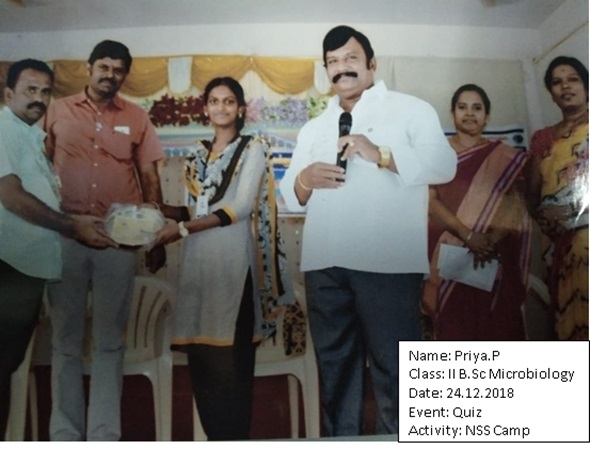
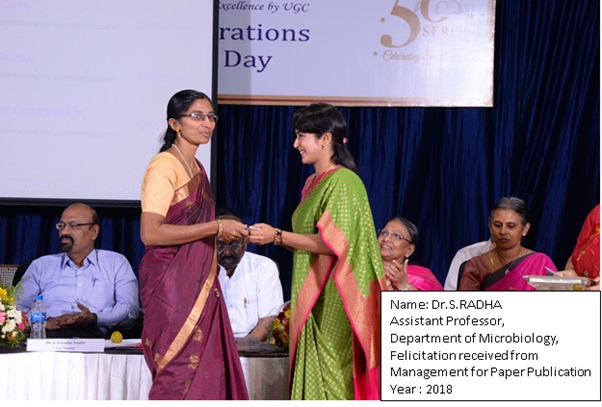
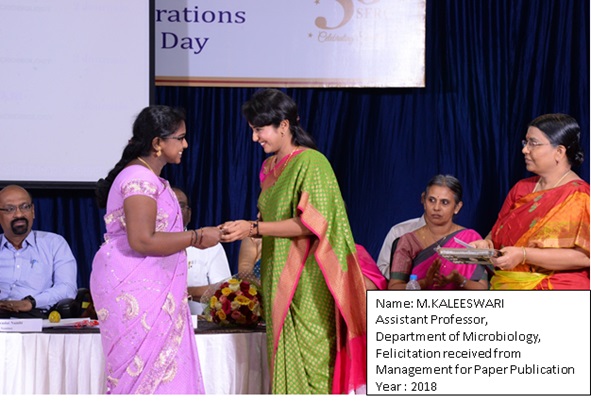
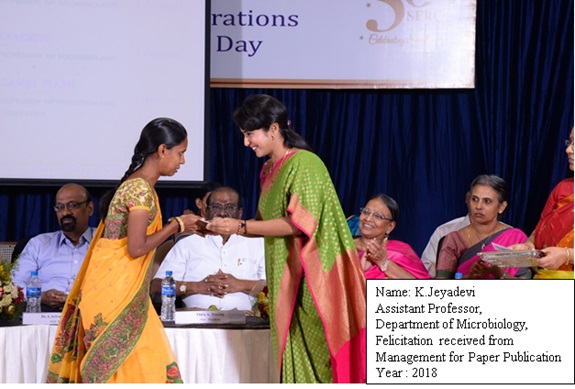
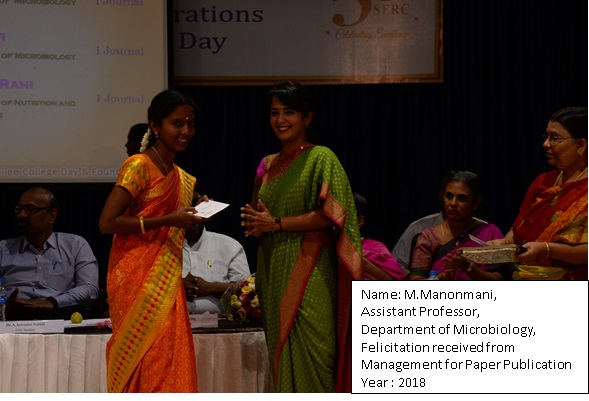
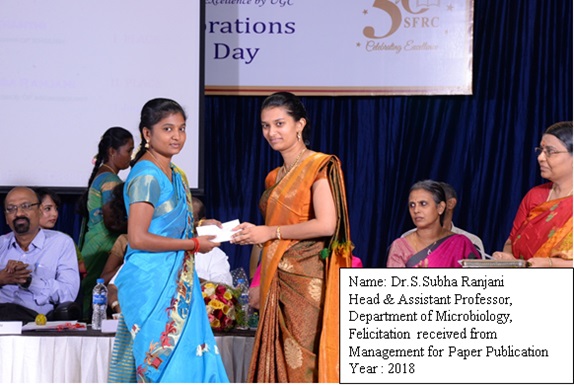
Student Achievements
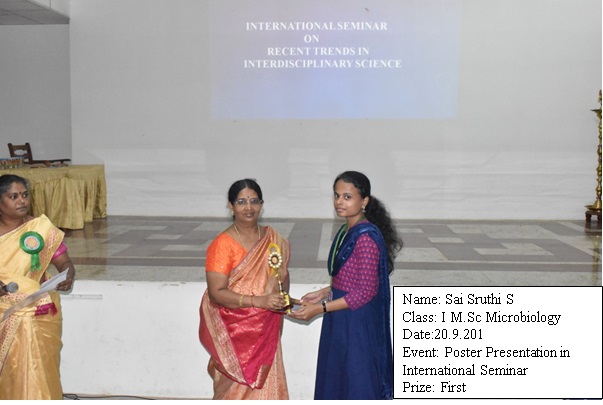
Contact Us
Thiruthangal Road , Sivakasi - 626123 , Tamil Nadu , India
Telephone Number
+91 4562-220389 FAX Number
+91 4562-226695 Email ID
sfrc@sfrcollege.edu.in
